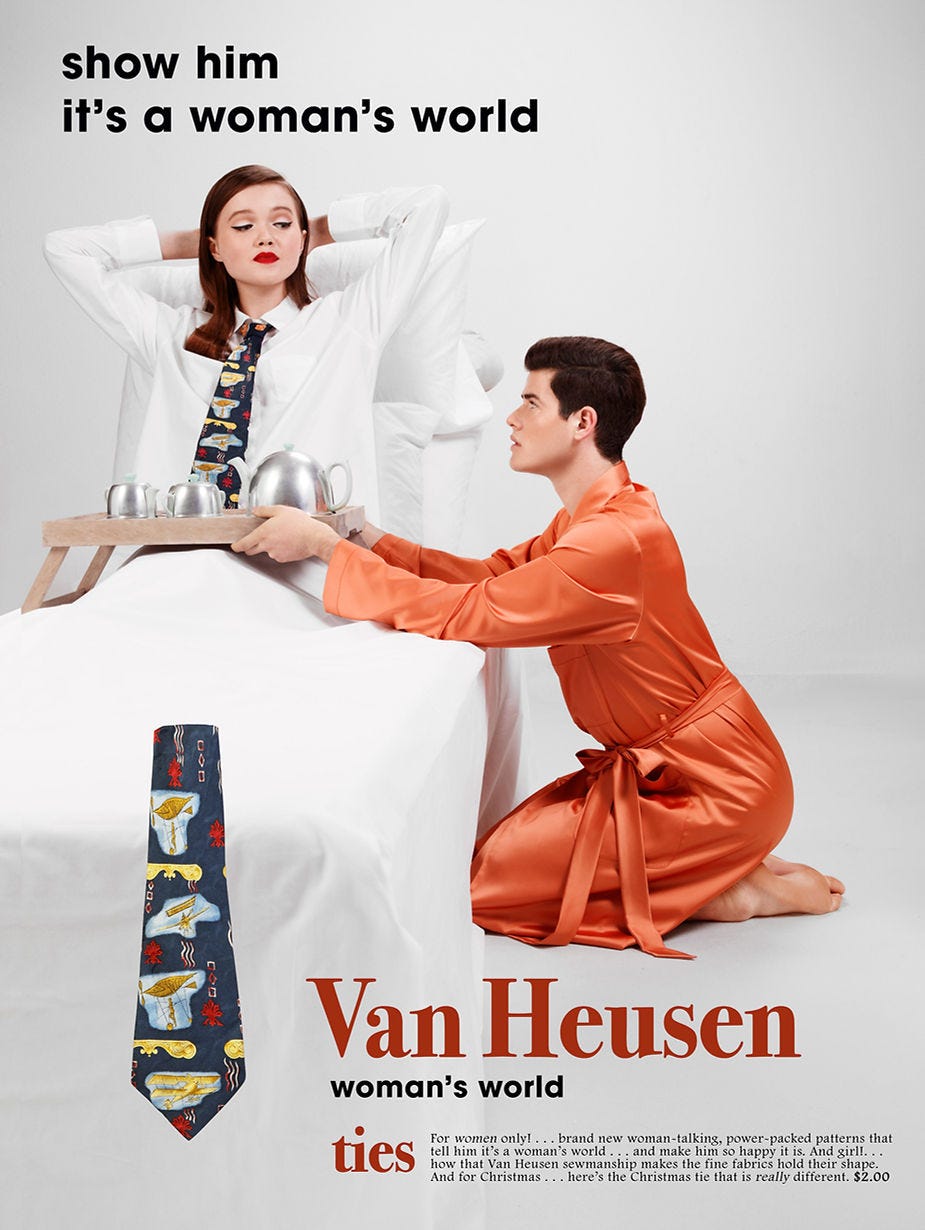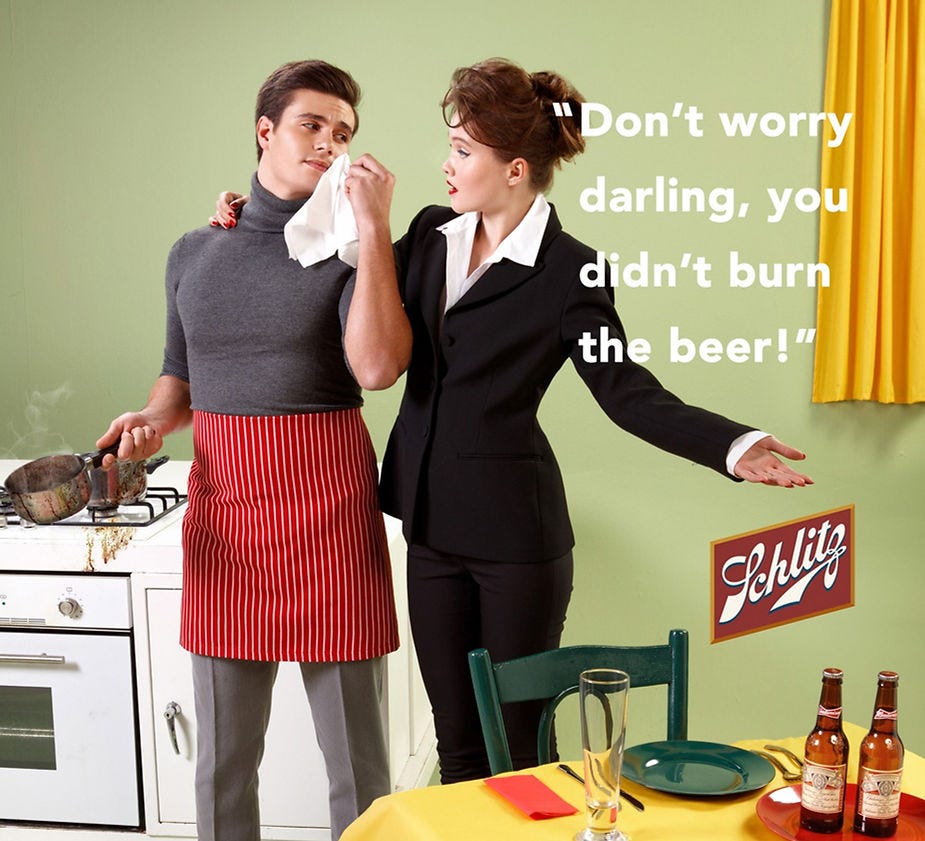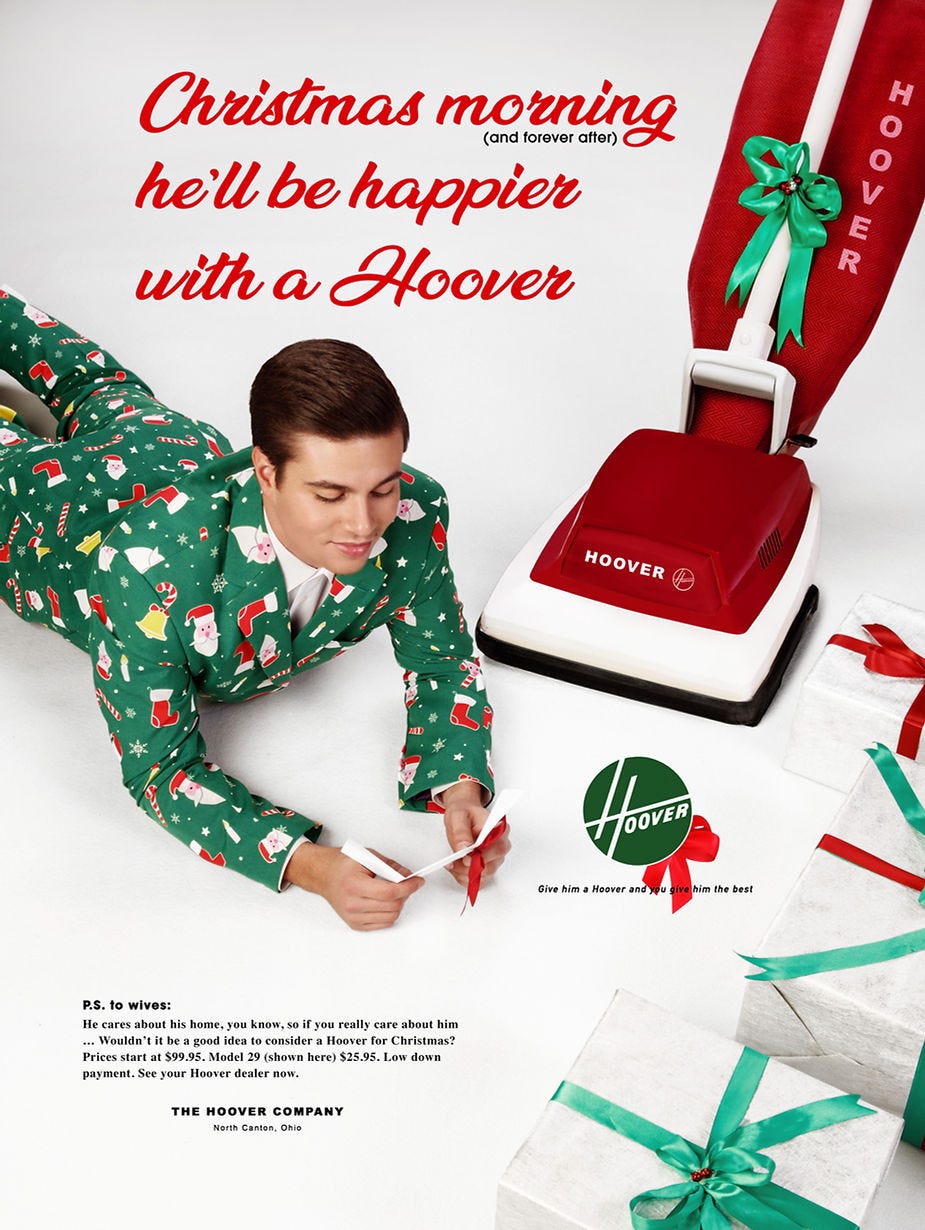This artist has reversed the gender roles of old-school adverts to show how sexist they are
Eli Rezkallah has taken ads from the 1940s and 1950s as his inspiration.
(Eli Rezkallah, produced by Plastik Studios 2018/PA)
Nowadays, we won’t stand for gender stereotyping but cast your mind back to the 1940s and 1950s, when it apparently wasn’t seen as a problem.
This was the heyday for extremely sexist advertising: something one photographer is turning on its head in his latest photo series.
Visual artist and photographer Eli Rezkallah has picked out some of the most shockingly misogynistic adverts from the Forties and Fifties – the Mad Men era of advertising – and reversed the gender roles.
Take the 1940s advert for shirts sold by Van Heusen. In the original, the man was comfortably in bed with the woman next to him on her knees, handing him breakfast with the caption “Show her it’s a man’s world.” To modern eyes, it’s pretty shocking – which makes Eli’s version even more impactful.
(Eli Rezkallah, produced by Plastik Studios 2018/PA)
A lot of the other adverts emphasised that women should stick to cooking and cleaning. In one original ad, the poor housewife cried as her husband proclaimed: “Don’t worry darling, you didn’t burn the beer!”
Eli applies the same role reversal here, providing an alternative perspective.
(Eli Rezkallah, produced by Plastik Studios 2018/PA)
Eli, who is 31 and lives in Beirut, says he came up with the concept last Thanksgiving when he went to New Jersey to visit family and heard some older men talking about how “women are better off cooking, taking care of the kitchen, and fulfilling their womanly duties”.
He continues: “Even though those ads were in the Fifties and some people perceive them as vintage, it feels like their essence is still present in the folds of today’s modern social fabric, so I went on to imagine a parallel universe, where roles are inverted and men are given a taste of their own sexist poison.”
(Eli Rezkallah, produced by Plastik Studios 2018/PA)
The photo series is a powerful statement, and that’s exactly how Eli intended it. He says: “I hope that people who are stuck in stereotypical gender roles imposed by patriarchal societies would be able to visually see the cracks in the limitation that those roles carry, through this project.”
In the wake of #MeToo and the Time’s Up campaign, seeing this kind of gender role reversal feels particularly powerful and necessary right now.





